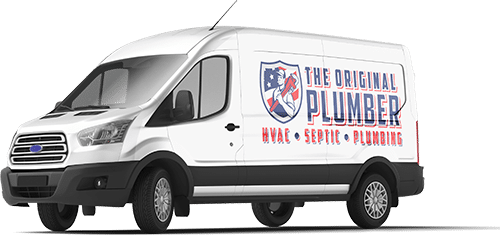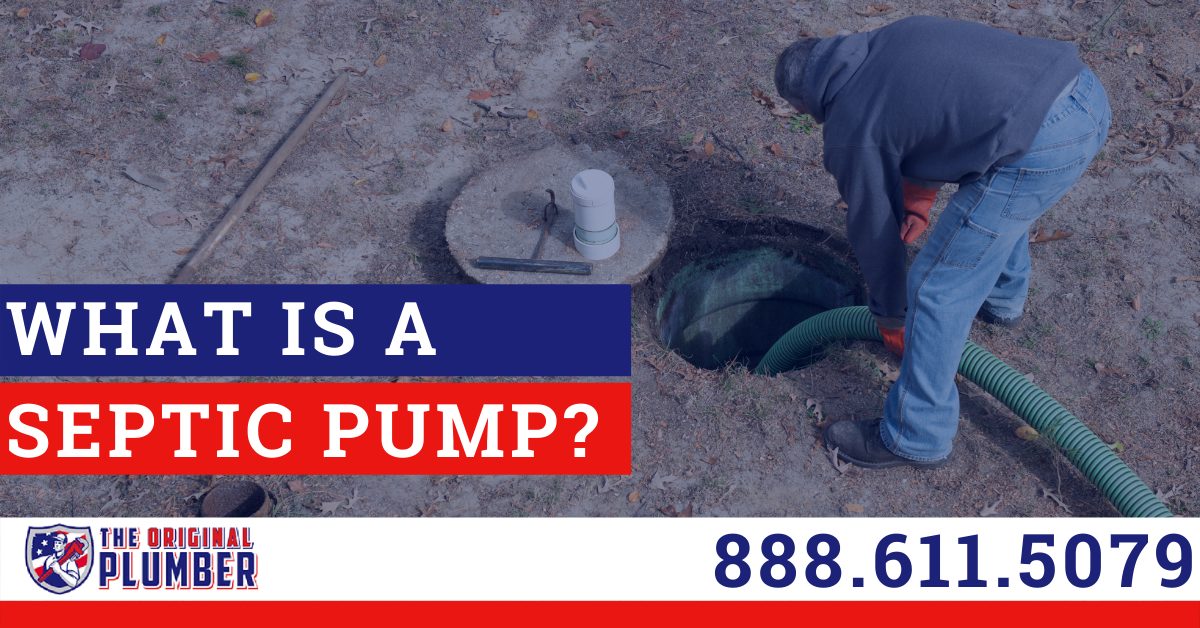If you have a septic tank, you may be wondering if you need a septic pump for your system or not. There are different types of pumps for septic tanks, so understanding what they are and how they work is critical.
Septic tanks are underground systems for property owners that are not connected to the city sewer system. Different tanks all work a bit differently. But at the end of the day, sewage from your septic tank flows through drain pipes and then ends up in your drain field to be treated by the soil.
If your septic tank needs a little help, that’s where septic pumps come in.
What is a septic tank pump and why do I need one?
A septic tank pump is an add-on that you can get for your septic system. There are different types of septic pumps that you may need in different circumstances.
Typically, the submersible pump is located in the last chamber of two-compartment tanks. If you have one septic tank, it is typically outside the main one in a separate pump chamber.
If you aren’t sure which type of septic pump you have, just give us a call.
Do You Need a Septic Lift Station?
Septic systems that do not need the extra help moving your wastewater into the drain field typically do not have them.
You do not need a septic system lift pump if your waste is moving at around two feet per second. This means gravity is doing a sufficient enough job with your property!
However, if your septic tank sits significantly below the drain field, then it may be harder for gravity to do its job. A septic system lift pump helps lift the water along so it can flow into the drain field.
Do You Need A Sewage Ejector Pump?
Sewage ejector pumps move sewage that is inside your home. Do you have a bathroom in your basement? Then you may need a sewage ejector pump.
Do You Need a Sump Pump?
Do you struggle with standing water? Then you may need a sump pump! Sump pumps move standing water from their location to help prevent backups.
How does a septic pump work?
A septic effluent pump helps your organic wastewater flow. It moves the effluent from your septic tank into your leach or drain field. These are also called a submersible water pump if you have an aerobic system.
A septic grinder pump takes human waste, toilet paper, and other solids in your septic tank and grinds them up. After grinding, it moves the waste.
Not sure which type of septic pump you have? Give us a call! The Original Plumber & Septic can help you determine which type of pump you have during a septic tank inspection.
Why do you need to pump a septic tank?
Pumping a septic tank is critical in preventing sewage backups. Heavy solids settle at the bottom of your tank and form a sludge layer. This sludge builds up over time. If it builds up too much, then your septic tank effluent can overwhelm your drain field.
Septic tanks need regular pumping every three to five years. You may need to have your septic tank pumped more frequently if you use a garbage disposal or have alternative systems. These alternative systems include pumps, electrical float switches, and other mechanics.
What happens when a septic pump stops working?
When your septic pump fails, your wastewater flows where it shouldn’t – to the ground surface level or to your home. Rather than going through your leach field’s soil or gravel, sewage moves into your home and can cause a backup. Sewage carries dangerous pathogens and bacteria, so it’s best to call a plumber immediately.
Do you suspect that your pump isn’t working? Keep an eye out for these common warning signs of septic pump failure:
- Your toilet, sink, and drain are backing up more frequently.
- Your sinks and showers are draining slowly.
- You hear gurgling sounds from your plumbing fixtures.
- Standing water is collecting near your septic tank.
- You smell a foul odor near your septic tank.
- Grass and plants are growing more quickly on top of where your septic tank is buried.
If you’re noticing any of these signs, give The Original Plumber & Septic a call. Some of your septic pump issues can be electrical, which can be dangerous to handle on your own.
Common septic pump issues include:
- Frozen bearings
- A blocked propeller
- Internal motor defects
- The water level is too low to reach the control switch
- Defective float switch
- Bent or blocked float rod
- A tripped circuit breaker or blown fuse
- The power cord is not making proper contact
- The branch circuit’s wiring is too small to carry the pump load
- A tripped pump motor overload
- Conduit is damaged
- Bad control panel connections
- Voltage is below plus or minus 10% of motor ratings
Prevent Issues With Our Septic Service
When you schedule routine septic tank maintenance, we can detect issues with your septic tank before they get out of control or costly. Routine septic tank pumping keeps your tank running smoothly.
With regular maintenance, your septic system should last you 20 to 30 years! Your pump station can last as long as 10-15 years with proper care.
A great way to be proactive with this is to have a septic tank pump alarm installed. The alarm system helps detect issues before they come up. A septic tank pump alarm will sound an alarm if your pump fails. Our plumbers can install this float switch to the small alarm panel for you. This way, you can be on top of it before your leach field is overflown and a sewage backup occurs.
Emergency Services for Atlanta’s Septic Systems
At The Original Plumber & Septic, we’re available 24/7. We understand emergencies happen! You may need your septic tank pumped right away. We offer septic pumping and repair services to the Northern Georgia area.
It’s also important to work with a professional when installing a septic pump. For example, we do not recommend installing the pump directly into a single chamber septic tank. This can cause the settled solids to work their way out and then create a blockage!
We can handle all of the installation work for you so that way, everything is done safely. If you need a new pump or are looking to have one installed, we’re here for you.




